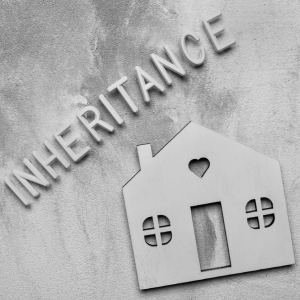
Inheriting a house with siblings in New Jersey can be both a blessing and a challenge. Better Cash Buyer helps you navigate legal responsibilities and make informed decisions about selling or keeping the property.
Understanding Inherited Property Laws in New Jersey
When you and your siblings are dealing with inherited real estate in New Jersey, it’s important to know the state’s property rules. In New Jersey, the legal process of certifying a deceased person’s will is called probate. This is part of managing inherited property.
If the owner of the property dies without a will, state succession laws decide who the legitimate heirs are. If more than one sibling inherits a property, co-ownership laws apply. This means that each sibling is a tenant in common with equal rights to use and occupy the property unless the will says otherwise.
You need to know about any debts or taxes that are still owed on the estate, since these debts could affect your decision about whether to sell or maintain the property. Also, if you are thinking about selling the inherited home, you need to know how the capital gains tax would affect you.
If siblings can’t agree on what to do with inherited property, hiring a knowledgeable real estate lawyer can help with complicated problems like partition actions. Knowing these rules ensures that everyone makes decisions that are in their best interests and follow New Jersey law.
Probate Process for Real Estate in New Jersey
The probate process for inherited real estate in New Jersey can be intricate, particularly when siblings are involved. In New Jersey, probate is the legal process that authenticates a deceased individual’s will and manages the allocation of their assets, including real property.
Siblings inheriting property must first ascertain whether the decedent left a will designating an executor to oversee the assets. In the absence of a will or a designated executor, the court may choose an administrator.
The procedure commences with the submission of a probate application to the Surrogate’s Court in the county of the decedent’s residence. This stage is essential as it confers legal authority to administer and allocate the estate’s assets.
During probate, all outstanding obligations or taxes owed by the estate must be resolved prior to any distribution of property. Siblings must engage in transparent communication and reach a consensus on managing financial responsibilities to effectively address potential inheritance disputes.
Moreover, comprehending New Jersey’s particular legislation concerning real estate in probate helps avert delays or issues, facilitating a more seamless transition for all beneficiaries engaged in jointly inheriting property.
The Role of Executors in Handling Inherited Estates

In New Jersey, executors are very important for making sure that the transfer of property ownership goes smoothly between siblings who have received property. Executors are in charge of managing the estate according to the will of the person who died. This includes things like figuring out how much the property is worth, paying off any bills or taxes that are attached to it, and finally giving the assets to the beneficiaries.
When siblings receive property together, the executor has to be very aware of how the family will react while still following the law. This includes setting up evaluations and getting the court approvals needed if the property needs to be sold so that the money can be split fairly.
Executors in New Jersey also need to be aware of the state’s own probate rules and deadlines, which could slow them down or make them less effective. Executors must be able to communicate clearly with all parties, including heirs and legal advisors, in order to carry out their job and avoid family arguments over inherited property.
Legal Steps for Sibling Co-Ownership of Inherited Homes
It’s important to know the formal steps for co-ownership when siblings inherit property in New Jersey so that the process goes smoothly. The first step is to make sure there is a clear title to the property. If the person who died did not leave a will or if the estate needs legal administration, this may mean going through probate.
To prove legal ownership, you must file the appropriate paperwork with the Surrogate’s Court. Once it is clear who owns the property, the brothers should talk about what they want to do with it, like selling, renting, or keeping it for themselves.
A co-ownership agreement can help spell out what each sibling is responsible for and their rights. It can cover things like property taxes, care costs, and how decisions are made. Talking to a lawyer who knows a lot about New Jersey real estate law can help you write this deal and handle any problems that might come up.
For making smart choices about the property’s future use, it’s also important to know the local zoning rules and how they affect taxes. The siblings should also think about how they will deal with any bills or liens that are on the property and whether they need to refinance.
If siblings take these steps carefully and work together, they can efficiently handle the property they inherited while avoiding arguments.
Common Challenges Faced by Joint Heirs in Property Management

Handling inherited real estate with siblings in New Jersey can lead to various challenges that co-heirs often face. Conflicting views on whether to sell or keep the property can create tensions within families, especially when some siblings regard the house as a cherished memory while others perceive it as a monetary investment.
Conflicts frequently emerge regarding the allocation of duties, including upkeep expenses, tax obligations, and essential repairs. These conflicts can become even more intricate due to differing financial resources and the varying levels of willingness to contribute among siblings.
A frequent challenge arises when determining the approach to rental management if the choice is made to lease the property rather than sell it. Dealing with legal intricacies introduces additional challenges; grasping probate laws and adhering to New Jersey’s unique regulations regarding inherited property requires meticulous focus.
Moreover, emotional strains can intensify throughout this journey, particularly when family legacies are interwoven with the estate. This makes transparent dialogue and teamwork essential, albeit difficult, for co-heirs as they navigate the complexities of their collective inheritance.
Joint heirs often face disputes, financial strains, and legal issues when managing inherited property. At Better Cash Buyer, we buy houses in New Jersey, offering a fast, hassle-free way to sell without repairs or delays.
Resolving Disputes Among Heirs in New Jersey
Addressing conflicts among heirs about inherited real estate in New Jersey can be a complicated process requiring study and effective communication. Siblings may hold divergent views regarding the sale of the property, its retention for personal use, or its rental as a revenue-generating asset.
In such circumstances, frank conversation is essential to achieve a consensus that satisfies all parties involved. Mediation can effectively facilitate discussions and assist siblings in resolving emotional and financial disputes.
Engaging a neutral third-party mediator well-versed in New Jersey real estate legislation helps facilitate the consideration of all legal facets while preserving familial bonds. Furthermore, seeking counsel from a seasoned attorney specializing in inheritance law in New Jersey may provide essential insights into equitable resolutions, such as buyouts or partition actions, to amicably settle issues.
By engaging with empathy and comprehending each sibling’s viewpoint, families might strive for mutually advantageous arrangements concerning their collective legacy. Considering the optimal seasons for selling your home can also help maximize value and ensure the best possible outcome for everyone involved.
How to Divide Inheritance When Sharing a Home with Siblings
When dealing with the complicated process of inheriting real estate with siblings in New Jersey, it’s important to be transparent and open about everything. The first step is to get a professional evaluation to find out how much the property is worth on the market right now. This will help you divide it fairly.
It’s important to talk openly about what each sibling wants and plans to do. Some may want to sell their portion, while others may want to keep it or move into the house. In these cases, legal guidance is very important because real estate rules are different and can have a big effect on choices.
Getting advice from a lawyer who knows New Jersey inheritance law will help you understand your rights and duties. If both siblings agree to sell the property, they should work together to find a real estate professional who knows the local markets so that they can get a reasonable price.
If one sibling wants to keep the house, they could buy out the other siblings’ shares based on the appraised worth. It’s crucial to think about how any decision can affect your taxes and how any current mortgages or liens will be handled.
When there are problems, mediation or family counseling can be helpful tools. They give everyone a neutral place to work things out while keeping family ties strong, even when things are tense.
What to Do If You Inherit a House with a Sibling?

When you inherit a house in New Jersey with a brother, it can be both fun and hard. The first thing you should do is be honest with your sibling about your goals for the property you received.
Getting a professional estimate is important to figure out how much the property is worth. This will help you make smart decisions. Next, decide if you want to keep the house, sell it, or rent it out.
If you decide to keep the house, discuss who will be responsible for maintenance and ongoing costs. However, if you’re ready to sell, you can sell your home for cash in Hackensack and nearby cities by agreeing on a fair price and making the process seamless.
If you’d rather rent, decide who will take care of the house or hire a management company. It’s also important to know what the tax effects will be. Talking to an accountant who knows about New Jersey’s inheritance rules can help you understand any possible capital gains taxes or other debts.
During this process, it’s helpful to get legal help from a New Jersey real estate and inheritance lawyer to make sure that all deals are properly written down and that any disagreements are settled without violence.
What Happens When a Sibling Is Living in a Deceased Parent’s House?
When a sibling lives in a house that belonged to a parent who has died in New Jersey, dealing with inherited real estate can be hard and traumatic. In these kinds of situations, it’s important to know what the law says about each sibling’s rights and responsibilities under New Jersey estate law.
If several siblings were left the property together, it’s important to find out if the sibling living there has the right to stay there or if they have to pay rent. In many cases, everyone involved needs to agree on how to pay for maintenance, property taxes, and any mortgage payments.
To settle disagreements and make sure that assets are fairly divided, you may need to talk to an estate lawyer who specializes in New Jersey real estate law. Also, siblings should think about whether selling the house or buying out the part of the sibling who lives there is a good idea.
Siblings in New Jersey might avoid conflict over inherited real estate by talking to each other clearly and getting aid from a skilled mediator.
A sibling’s right to live in a deceased parent’s home depends on the estate or state law. To avoid disputes, clarify ownership and follow legal procedures. For more help, Contact Us at Better Cash Buyer.
What Is the Order of Inheritance in New Jersey?
In New Jersey, the sequence of inheritance is determined by state intestacy rules, which control how assets are dispersed when a person dies without a will. Understanding this structure is critical when handling inherited real estate with siblings.
In New Jersey, if there is no surviving spouse or civil union partner, the deceased’s children inherit equally. This means that siblings will split the inherited property unless otherwise stated in the will.
If one of the siblings dies but leaves descendants, those descendants inherit their parent’s portion according to the stirpes system. If there are no living children or descendants, inheritance might transfer to parents or other relatives under New Jersey’s intestate succession laws.
To ensure equitable distribution and avoid potential conflicts over inherited real estate, siblings must communicate openly and work together to navigate these legal complications. Consulting with an expert New Jersey estate attorney will help you better comprehend and apply these inheritance requirements.
Want to sell your home quickly? There are no repairs, delays, or headaches. At Better Cash Buyer, we buy houses as-is and pay fair cash offers. Call (347) 386-2549 now to get started with a no-obligation consultation.
| LEVIED | TAX BASED | TAXATION | TAXED | TAX PAYMENT | DEATH TAX |
| ESTATE TAXES | ESTATE TAX | FEDERAL ESTATE TAX | NEW JERSEY STATE | STATE OF NEW JERSEY | NEW JERSEY |
| BENEFICIARY | INTESTATE PROPERTY | INTESTATE SHARE | TAX EXEMPTION | LEGAL SERVICES | LAWYER |
| LEGAL COUNSEL | GRANDCHILDREN | OWNERSHIP INTEREST | TAX RATES | STEPCHILDREN | |
| BLENDED FAMILIES | REALTY | REAL ESTATE TAX | MEDICAID | MARRIAGE | TAX LAWS |
| TAX ATTORNEY | TAX LAW | PERCENTAGE | INFORMATION | GRANDPARENTS | FEES |
| BEQUESTS | NEW JERSEY THE | IN NEW JERSEY THE |
Helpful New Jersey Blog Articles
- How To Execute A Quitclaim Deed For Real Estate In New Jersey
- What to Do If You Inherit a House with a Mortgage in New Jersey
- How to Sell a House With Code Violation in New Jersey
- How to Sell a House with Water Damage in New Jersey
- How to Sell a House Without a Realtor in New Jersey
- How to Sell a Hoarder House in New Jersey
- Selling a House During Divorce in New Jersey
- Selling a House in Probate in New Jersey
- Selling a House with Fire Damage in New Jersey
- Squatters’ Rights in New Jersey
- Can You Sell a House with Tenants in New Jersey?
- Quit Claim Deed in NJ
- Who Pays Taxes When Selling a House in NJ?
- How To Execute A Quitclaim Deed In New Jersey
- Inherited House With Siblings In New Jersey

